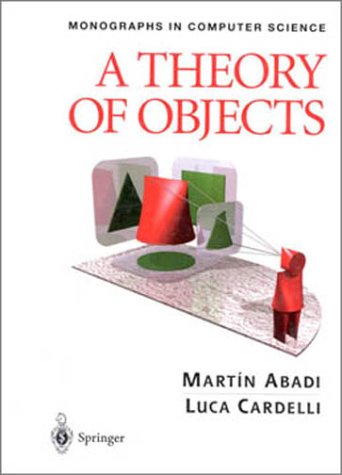BETA(ID:1032/bet001)
Object oriented language
Norwegian Computing Center, Oslo, 1975
Beta development process started in 1975, with the aim to develop concepts, constructs, and tools for programming. The team consisted of Bent B. Kristensen, Birger Molle-Pederson, Ole Lehrman Madsen, and Kristen Nygaard.
Object-oriented language with block structure, coroutines, concurrency, strong typing, part objects, separate objects and classless objects. Central feature is a single abstraction mechanism called "patterns", a generalization of classes, providing instantiation and hierarchical inheritance for all objects including procedures and processes.
A modern OOL with comprehensive facilities for procedural and functional programming. BETA has powerful abstraction mechanisms that provide excellent support for design and implementation, including data definition for persistent data. The abstraction mechanisms include support for identification of objects, classification, and composition. Abstract mechanisms include class, procedure, function, co-routine, process, exception, and many more, all unified into the ultimate abstraction mechanism: the pattern. In addition to the pattern, BETA has sub-pattern, virtual pattern, and pattern variable.
does not only allow for passive objects as in SMALLTALK, C++, and EIFFEL. BETA objects may also act as co-routines, making it possible to model alternating sequential processes and quasi-parallel processes. BETA coroutines may also be executed concurrently with supported facilities for synchonization and communication, including monitors and rendezvous communication.
Mjølner Informatics ApS, implementations for Mac, Sun, HP, Apollo.
People:
Structures:
Related languages
| GAMMA | => | BETA | Compiled by | |
| SIMULA 67 | => | BETA | Evolution of | |
| BETA | => | Ellie | Influence | |
| BETA | => | MetaBETA | Augmentation of | |
| BETA | => | Siri | Influence |
References:
in SIGPLAN Notices 20(05) May 1985 view details
in Research Directions in Object-Oriented Programming 1987 view details
in Knudsen, J. ; O. Madsen, B. Magnusson, and M. Lofgren, editors, Object-Oriented Environments. Prentice Hall, September 1993. view details
This period of expansion for SIMULA took the form of a pure system description language called DELTA (Holbaek-Hanssen 1977). The DELTA project sought to implement system specification for simulation execution through a series of transformation from a high level user
perspective through an intermediate form called BETA, culminating with an executable language called GAMMA.
in The 27th Winter Simulation Conference 3-6 December 1995 Hyatt Regency Crystal City, Arlington, VA view details
The meta-level interface is based on a novel language construct, a meta-reference called attribute reference.
in The 27th Winter Simulation Conference 3-6 December 1995 Hyatt Regency Crystal City, Arlington, VA view details

in The 27th Winter Simulation Conference 3-6 December 1995 Hyatt Regency Crystal City, Arlington, VA view details
in Cointe, P. editor, Proceedings of the Ninth European Conference on Object-Oriented Programming (ECOOP), July 1996. LNCS 1098, Springer-Verlag view details
The increased expressive power is obtained from a synergy between
general block structure and the generalised type hierarchy, and not
from syntactic additions to the language.
The type hierarchy described in this paper is a superset of the class
hierarchy. In order to regain an orthogonal and internally consistent
language, we investigate the impact of the new type hierarchy on other parts of the language. The resulting increase in expressive power serves to further narrow the gap between statically and dynamically typed languages, adding among other things more general generics, immutable references, and attributes with types not known until runtime.
in Cointe, P. editor, Proceedings of the Ninth European Conference on Object-Oriented Programming (ECOOP), July 1996. LNCS 1098, Springer-Verlag view details
in Cointe, P. editor, Proceedings of the Ninth European Conference on Object-Oriented Programming (ECOOP), July 1996. LNCS 1098, Springer-Verlag view details
in Concurrency: Practice and Experience 2000 v12 view details
Resources
info:i
list:usergroup@mjolner.dk